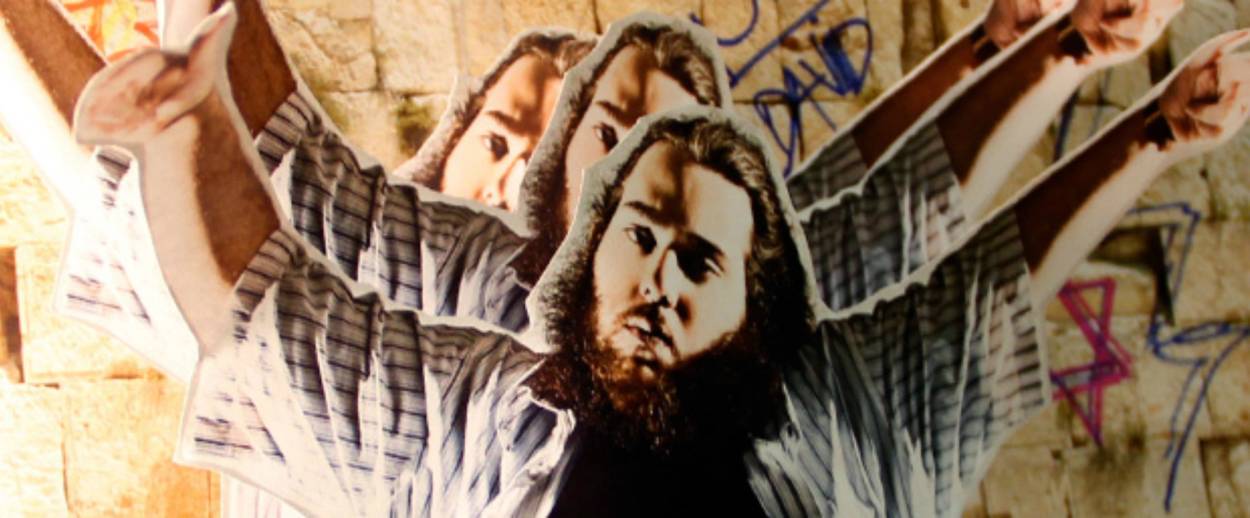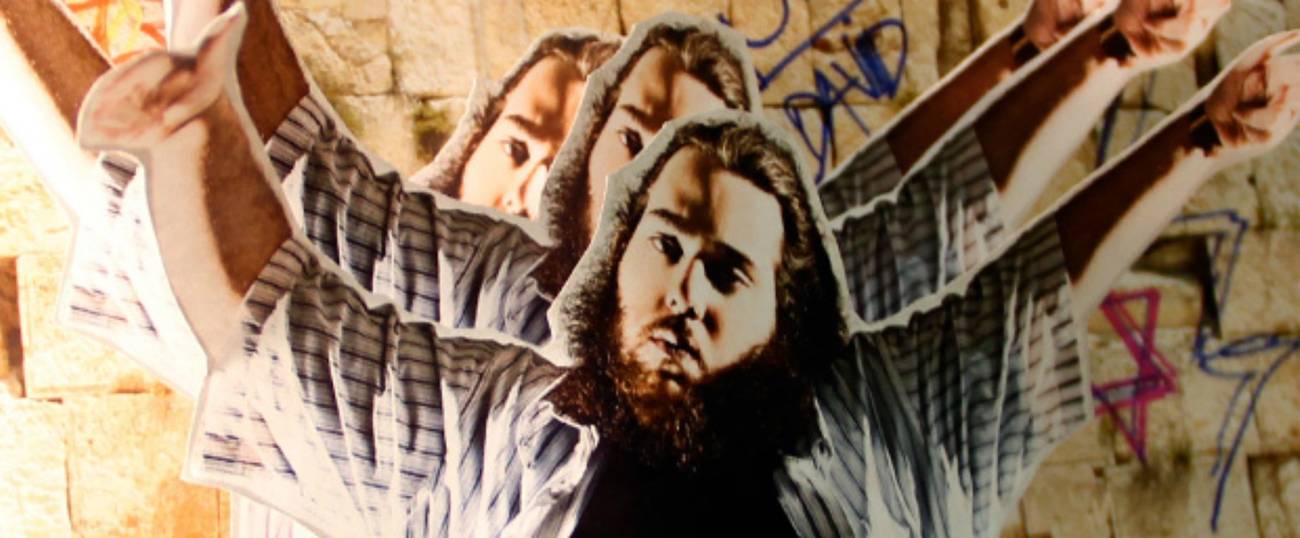Straight Outta Petach Tikva
Two new album releases make today a big day for Israeli hip hop




It’s a big day for Israeli hip hop: two of the scene’s biggest names, Lukach and Nechi Nech, have new albums out. It’s a good opportunity for fans to take the measure of an art form, Hebrew hip hop, that is growing into something original and formidable.
Calling his latest release “Crack Games,” Lukach—a corpulent, playful, and massively charismatic MC—continues his evolution into a local Israeli hybrid of Big Pun and Weird Al. In “The King of Crack,” he takes on the persona of a hardened dealer who makes a fortune by selling the synthetic drug to Israeli politicians and blowing all of his profits on sushi. In “Gym Song,” he spins an absurdist tale of the various hallucinations he suffers after passing out while on the treadmill, including a dance party in heaven with Tupac Shakur and Yitzhak Rabin. And just when you’re ready to dismiss Lukach as a clown who would sacrifice everything (even his talent) for another great punchline, he comes out with a song like “Night Falls Again,” a beautiful and slow mash-up of trip hop and auto-tune, and more puns and small lyrical gems like: I follow the religion of Moses / Of striking water out of rocks.
But whereas Lukach’s new album goes bigger, Nechi Nech’s grows deeper. Titled “Welcome to Petach Tikvah”—the sleepy town in central Israel where Nechi still lives—it shows the young rapper at the height of his powers. In “Government is an Organized Crime,” he sounds like a young Dylan, singing a jaunty little blues tune about the indignities of middle class life. In “The King of Middle Eastern Rap,” he marries traditional Arabic maqams with a hard beat and raps about his own lyrical prowess, always with a wink and a sly smile. And “Sababa” is a perfect dub feelgood number that you’d want to play again and again and again. But to realize just how far Nechi has come since his debut, listen to “Tehila,” an intricately crafted short story about the trappings of fame told as the allegorical tale of a love affair gone sour. It’s splendid stuff, the work of a mature and thoughtful artist who had mastered much more than his swagger and his flow.
Go listen to these two stellar releases, then, and take pride in knowing that some of the most innovative rap currently being made comes to you straight outta Petach Tikva.
Previous: An Israeli Hip-Hop Playlist
Former The Streets Frontman Hosts Series About Israeli and Palestinian Hip-Hop
Fat Man Saves Israeli Hip-Hop
Related: Shiva for a Beastie Boy
Out of Tune
VoxVault: My Hip-Hop Nation
Liel Leibovitz is editor-at-large for Tablet Magazine and a host of its weekly culture podcast Unorthodox and daily Talmud podcast Take One. He is the editor of Zionism: The Tablet Guide.